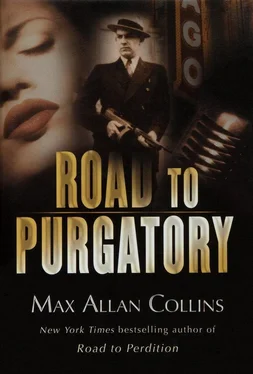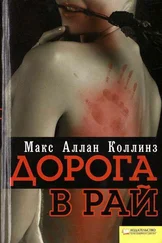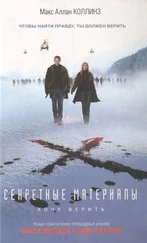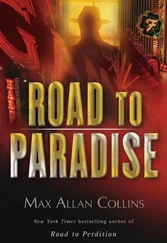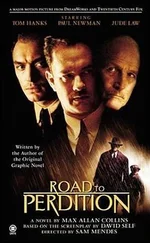This was where Eliot Ness came in.
“Last March,” he said, “I resigned from my job as public safety director in Cleveland to take this on — it’s my way of fighting the war.”
The Division of Social Protection’s mandate was “safeguarding the health and morale of the armed forces and of workers in defense industries.” This included educational efforts, like films and pamphlets warning of the dangers of venereal disease; but primarily involved a law enforcement effort to cut back on prostitution in areas close to military and naval bases, as well as industrial areas.
Ness supervised the activities of twelve regional offices; but he had made the Chicago branch his “baby,” as it provided him with an opportunity to clean up some unfinished business.
“Al Capone was sentenced on tax evasion,” Ness said, “in this very building. We accomplished that with a two-pronged attack — my squad cut off the mob’s financial flow while the accountants fine-tooth-combed the books we seized.”
Shifting in his chair, keenly interested, Michael said, “And this is a two-pronged attack, as well? While the government prepares the movie extortion case, you hit Capone on prostitution?”
“Exactly right, Michael.” Ness leaned forward, hands folded prayerfully. “You and I might be settling up some old scores, here... but that’s just a bonus. We really would be fighting the home-front war.”
Ness laid it out. Chicago was the nation’s center for transportation; the Quartermaster Corps had its headquarters here. The Stevens Hotel had been converted to a military training facility and housing center for GIs in transit; the Chicago Beach Hotel was now a military hospital, Navy Pier a training facility, universities providing military training. Fort Sheridan, north of the city, remained an army training camp, and the navy had taken over Curtis Air Field.
The city’s industrial plants were converting heavily to war production, Pullman switching from train cars to aircraft, the Electromotive plant turning out tanks. The steel mills were working overtime, and a new Douglas Aircraft factory on the North West Side was producing frames for the C54 transport. The Grebe shipyards, near Riverview Amusement Park, were turning out subchasers.
“All of these locations are prey to prostitution,” Ness said. “And, when ration stamps hit the Midwest, we can assume the Capone boys will move into stealing and counterfeiting ’em; and black market meat will soon follow.”
“I’m convinced there’s a problem,” Michael said, “and an opportunity. But what role can one one-eyed soldier play?”
“A key one. You’re not Michael O’Sullivan, Jr., to the Capone mob. You’re Michael Satariano, the Italian American... a Sicilian boy, no less... who just won the Medal of Honor. Your heroism tells the public at large where Italian Americans stand on this war.”
“And how is that helpful?”
“Do I have to tell you the biggest problem I’m fighting isn’t social disease, but corruption? Mayor Kelly is in Capone’s pocket, and those legislators shaking your hand the other day? Mob shills. And then there’s the police — I have only a handful of local coppers I trust. I need a man on the inside, who can feed me information.”
Making sure he’d heard this correctly, Michael slowly said, “You want me to get hired by the Capone Outfit. To work for them.”
“And with them. Yes. It’s an undercover assignment, and it’s dangerous. Maybe not as dangerous as facing a hundred armed Japs... but dangerous enough.”
Michael was shaking his head, doubtfully. “Me being a war hero... maybe that gets me in to shake Frank Nitti’s hand. It doesn’t get me ‘inside.’”
“There’s a way. There is a way.”
“I don’t see it.”
“Your father, Michael.”
“...My father?”
“I mean, Papa S.”
“What about him?”
“Ask him to recommend you. Ask him to pave the way.”
“What, are you nuts?” Michael literally waved this notion off. “Papa S. is no mobster.”
“I didn’t say he was. But he is, in his small way, connected.”
“Connected? Little white-haired, chubby Papa? You’re out of your mind — I mean, no offense, but, hell—”
“Please. Just listen. Your ‘father’ opened his restaurant in 1924 in DeKalb, as a kind of front; Pasquale was a middle man between Chicago and farmers who provided the hops, malt, and corn needed for processing liquor.”
Michael said nothing. How could he protest, when he thought back on the core regulars at the restaurant: farmers who brought their families in once a week, and who spoke and joked warmly with Pasquale, like old friends...
“Prohibition was the plague that created the Capones and the Looneys,” Ness said. “And the Volstead Act taught honest people like Papa S. that breaking a stupid law like that might be a crime, but certainly no sin.”
“Maybe in the ’20s,” Michael allowed, again shaking his head in doubt. “I’m sure he has no contact with them, anymore.”
“Does Papa S. buy his produce and supplies in Chicago? The mob controls olive oil, fruits and produce, and tomato paste... just like they do gambling, dope, and prostitution.”
Silence filled the room, interrupted only by the whirring of the window fan.
“Now keep in mind,” Ness said, lifting a warning finger, “you may be asked by these people, even ordered to do things, that you can’t do. Break a law undercover, you’ve still broken a law.”
“I thought this was war.”
“There are wars, and there are wars. If you think you’ve gotten in over your head, for God’s sake swim to shore.”
“And if somebody like Frank Nitti tells me to commit a crime for him...?”
“You must... somehow... manage not to do it, without tipping your hand. That’s the hardest part of your assignment. You must seem to be one of them, without becoming one of them... Do you understand?”
Finally Michael said, “Am I being ordered to do this?”
“I told you — strictly volunteer. You’ll remain on active duty, and receive your pittance of a paycheck from Uncle Sam.”
“Who will know?”
“I will. So will Lieutenant William Drury — your police contact. And should both Drury and myself be eliminated by the Capone crowd, I’ll have left a sealed envelope with Governor Green, explaining everything.”
“Can he be trusted? You said those legislators were mob shills...”
Ness grinned. “Dwight Green prosecuted Scarface... I can show you the courthouse, downstairs. He helped me send Al Capone to Alcatraz.”
Just as you, Mr. Ness , Michael O’Sullivan, Jr., thought, will help me send Al Capone to hell ...
Ness had been right.
Something had awakened in Michael in the jungles of Bataan. That war was lost to him — Captain Wermuth and General Wainwright, right now they were either dead or imprisoned by the Japanese, and out of Michael’s reach — nothing he could do for them.
But this old war, the Capone war, could still be waged... and won. After all these years, after all this time, the death of his father could be avenged. It might start in Chicago, but it would end in Miami, with Al Capone in Michael O’Sullivan, Jr.’s, gunsights.
Or his hands.
His father had put the squeeze on Capone; Michael would squeeze another way.
Michael stood and extended his hand to Ness, who rose, and again they shook, rather ceremoniously.
“Thank you, Michael.”
“Glad to help,” said the son of the Angel of Death.
Michael spoke to Papa Satariano after hours that evening, the help gone home, Mama finished in the kitchen and upstairs, Papa having tallied the till and locked up.
Читать дальше
